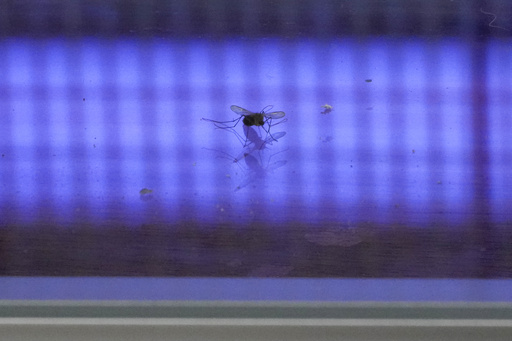
In Manila, Philippines, a local community has kicked off an innovative initiative to combat dengue fever by incentivizing residents to catch mosquitoes, whether they are alive or dead. This unique approach, conducted by Addition Hills in Mandaluyong City, comes as a response to an alarming rise in dengue cases after Quezon City reported an outbreak just days ago. Alongside this outbreak, eight additional areas have also seen an increase in dengue cases, raising further concerns amongst public health officials.
Statistics from the health department reveal that the Philippines has recorded over 28,234 dengue cases as of February 1, marking a 40% increase compared to the same timeframe last year. The surge in cases prompted Quezon City to declare a dengue outbreak after ten fatalities, mostly involving children, among the 1,769 reported infections.
Addition Hills, a densely populated area with over 100,000 residents in its tight-knit community, has previously undertaken various preventative measures, including clean-up drives, declogging of canals, and hygiene campaigns, to fight dengue. However, with dengue cases rising to 42 this year and the tragic deaths of two young students, village leader Carlito Cernal opted to escalate efforts against the mosquito-borne illness. “There was an alarm,” Cernal explained. “I found a way.”
Under the current initiative, residents can earn one Philippine peso (approximately 1 cent) for every five mosquitoes or larvae they bring to the village office. Although some critics have expressed concerns that this strategy may lead individuals to breed mosquitoes in a bid for profit, Cernal contended that such a scenario was unlikely, stating that the campaign would cease once the increase in cases subsides.
The campaign saw immediate participation, as a number of individuals searching for mosquitoes arrived at the village office. One resident, Miguel Labag, a 64-year-old scavenger, presented a jug containing 45 mosquito larvae and was rewarded with nine pesos (15 cents). “This is a big help,” Labag remarked with a smile. “I can buy coffee.”
Dengue is a viral infection spread by mosquitoes and is prevalent in tropical regions. Symptoms can include joint pain, nausea, vomiting, and rashes, while severe cases may lead to breathing difficulties, organ failure, and hemorrhaging. Although there is no specific antiviral treatment for dengue, maintaining proper fluid levels is crucial for those infected.
In a different area of Quezon City, officials are exploring the option of introducing frogs to help control mosquito populations by using them as natural predators. Health Secretary Teodoro Herbosa emphasized the importance of eliminating mosquito breeding sites and urged anyone showing symptoms of infection to seek medical care quickly. Despite the rising number of dengue infections, he noted that the Philippines has successfully kept mortality rates low.
The unexpected surge in dengue cases ahead of the usual rainy season, kicking off in June, has been attributed to intermittent rainfalls creating stagnant water pools that serve as breeding grounds for mosquitoes. Health Undersecretary Alberto Domingo also pointed to climate change as a potential contributing factor to this irregular weather pattern.

